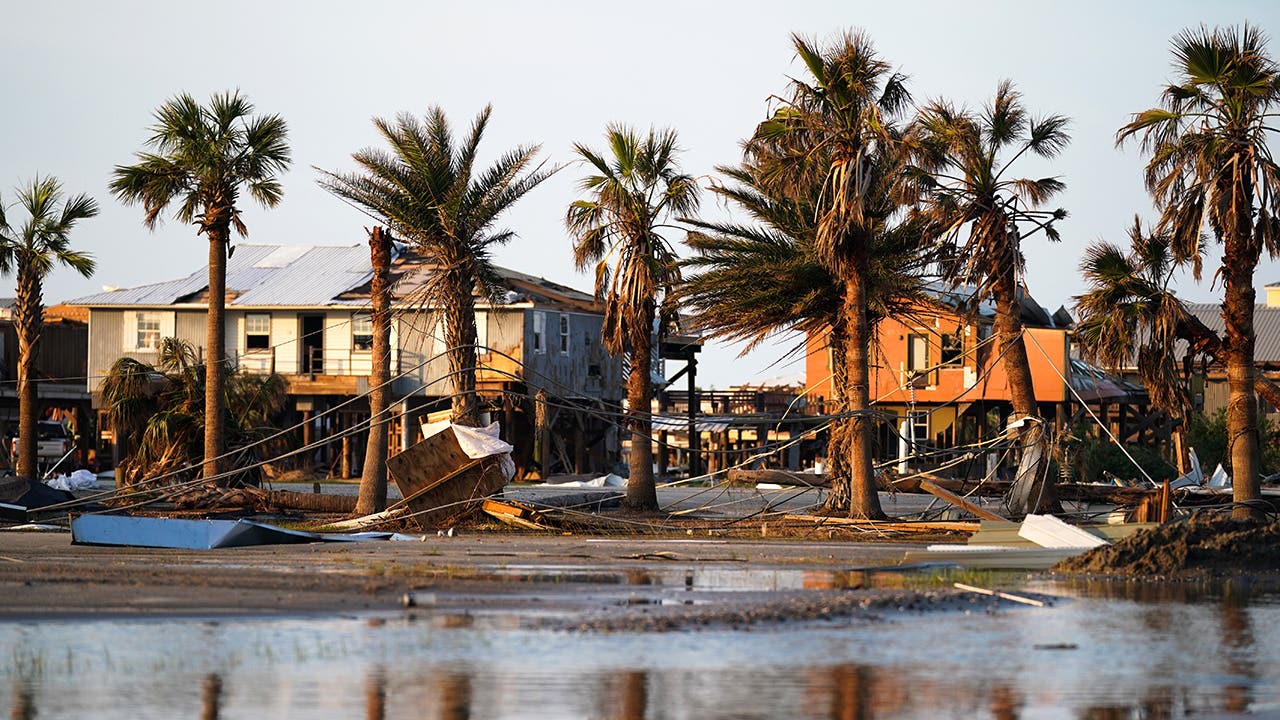Louisiana’s incentives may encourage home insurers to return to the state

Key takeaways
- 11 property insurance companies in Louisiana became insolvent between July 2021 and September 2022, reflecting the deepening crisis in the state's insurance market .
- Louisiana Citizens, the state's insurer of last resort, inherited thousands of policies from failing or departing insurers and implemented a 63 percent rate increase, effective January 1, 2023 .
- The number of homeowners insured by Louisiana Citizens has nearly tripled since Hurricane Laura in 2020, indicating the dire state of Louisiana’s home insurance market.
- In February 2023, the Louisiana Legislature allocated $45 million to the Insure Louisiana Incentive Program, aiming to stabilize the homeowners insurance market and encourage new insurers to enter the state .
- Homeowners pay an average of $1,992 per year for home insurance in Louisiana according to Quadrant Information Services, which is 39 percent higher than the national average for home insurance.
From the haunting bayous to the lively streets of New Orleans, Louisiana has an appeal that few states can match. But Louisiana’s position along the Gulf Coast and the low-lying areas along its southern border makes it particularly vulnerable to hurricane damage. Because of the risk of storm damage, the state’s home insurance market is facing challenges. Bankrate investigated the situation and spoke with several insurance experts to understand what’s happening and how it impacts Louisiana homeowners.
What is happening to the Louisiana home insurance market?
The Louisiana home insurance market is currently grappling with a crisis and even homeowners with clean claims histories and good credit have seen a 10 percent increase in premiums since 2021, according to our rate data from Quadrant Information Services. This surge in premiums underscores the ongoing challenges within the state’s insurance sector, which is exacerbated by regulatory complexities and escalating claims costs. The rising rates indicate mounting pressure for insurance providers, policyholders and the state’s insurance department to find a solution. Commissioner of Insurance in Louisiana Jim Donelon spoke to Bankrate about the current situation:
There is a very hard market out there to get coverage.
— Jim Donelon the Commissioner of Insurance for the State of Louisiana
In response to the crisis, the state is undertaking critical measures. Some proposed solutions may add to the challenges faced by homeowners. Donelon is backing a tort reform proposal that aims to reduce frivolous lawsuits. However, some worry that the reform would also limit homeowners’ ability to seek legal action regarding legitimate claims.
Additionally, in a move reflecting the severity of the situation, the Louisiana Department of Insurance (LDI) approved a substantial 63 percent rate increase for Louisiana Citizens’ residential property insurance policies from January 1, 2023. This rate increase reflects insurers’ need to maintain financial viability amid rising claims costs, often due to natural disasters and other risk factors prevalent in the state. While it places additional financial burden on policyholders, it’s a measure taken to ensure that insurers can continue to provide coverage and pay out claims.
Why are insurance companies struggling in Louisiana?
The struggles of the Louisiana home insurance market have escalated significantly in recent years, with a growing number of insurers facing financial insolvency. Donelon pointed out that since the dual impact of Hurricanes Laura and Delta in 2020, 11 residential property insurance companies have been declared financially insolvent, and 12 others can no longer operate in the state. This has affected a significant segment of the market; the 11 insolvent insurers are responsible for 184,000 policies, highlighting the extensive impact of their financial challenges on the market to homeowners.
This trend of insolvency among insurers in Louisiana is largely attributed to the overwhelming number of claims following major natural disasters, particularly hurricanes. The state’s geographical vulnerability to such disasters has resulted in a high frequency of claims, which places a substantial financial burden on insurance providers.
Mark Friedlander, Director of Corporate Communications at the Insurance Information Institute, explains: “The insurance crisis in Louisiana is driven by excessive property claim losses from hurricanes, which had devastating effects for small, regional home insurers that were under-capitalized.”
The sector’s difficulties are further compounded by the increasing costs and limited availability of reinsurance. Reinsurance is a type of insurance policy providers use to make sure they have enough money in reserve to pay out expensive post-catastrophe claims.
Although South Louisiana did not face major hurricanes in 2022, reinsurance rates have continued to rise into 2023, exacerbating insurers’ challenges in maintaining financial stability and offering affordable coverage. These factors collectively contribute to the current crisis in Louisiana’s home insurance market, demonstrating the precarious balance insurers must navigate between risk management and maintaining profitability.
Hurricane risk
For most companies exiting Louisiana’s market, the reason is simple: the state is too risky.
Donelon notes that Louisiana “had a really long, quiet period of hurricane seasons until 2020.” The home insurance market may have begun to calm a bit after the challenge it faced in the wake of Hurricane Katrina in 2005. Because less damage was happening, home insurance companies may have been able to charge comparatively lower rates and maintain lower claims reserves (the money set aside to pay claims).
Interestingly, 2022 and 2023 marked a return to a quiet hurricane period for Louisiana, with no direct hurricane threats to the state. This recent lull in hurricane activity may provide a much-needed respite for the insurance market and could give companies a chance to strengthen their financial reserves and reassess their risk strategies. The Louisiana home insurance industry may receive a crucial window to recover and prepare for potential future challenges, given the unpredictability of hurricane patterns and the ongoing concern about the increasing intensity of such natural disasters over time.
Unfortunately, this one-year lull more than likely won’t be enough to offset hurricanes in recent years. 2020 and 2021 brought four devastating hurricanes in a row — Laura, Delta, Zeta and Ida. These four storms caused $76.65 billion of damage in Louisiana. About 72 percent, or $55 billion in damage, was from Hurricane Ida, which hit the state in late June 2021. The rapid increase in risk level — not to mention the massive influx of claims — was enough to financially cripple at least six property and casualty insurance companies. Even companies that were fiscally strong enough to withstand the barrage of losses may not be willing or able to handle another hurricane season.
This has resulted in companies withdrawing or pausing their writing in our property insurance market.
— Jim Donelon the Commissioner of Insurance for the State of Louisiana
And it’s likely to get worse. According to the National Climate Assessment, hurricanes have increased in duration, frequency and intensity since the 1980s and are predicted to continue getting stronger. As the risk of widespread damage increases, it may be more likely that home insurance companies will hesitate to do business in Louisiana.
Reinsurance costs
Louisiana’s home insurance market operates, in large part, based on reinsurance. Reinsurance is a type of insurance coverage that your insurance company purchases to protect itself from the financial risk of claims. Essentially, reinsurance means the less-risky areas of the world are helping to subsidize the ability of insurance companies to operate in more risk-prone areas.
But reinsurance costs money, and like many other types of coverage, the cost for coverage is rising. Insurance companies are paying more for reinsurance due to the increasing frequency of natural disasters worldwide. Donelon confirmed that reinsurance rates are rising and that insurance companies will likely pass on some of that cost to policyholders in the form of higher rates.
What is being done to curb the crisis?
While all of this sounds scary — and it’s certainly far from ideal — Louisiana is taking action that will hopefully stabilize the market.
Lee Ann Alexander, Vice President of State Government Relations at the American Property Casualty Insurance Association (ACPIA), talked with Bankrate about the insurance bills included in the 2022 Louisiana Legislative Session. She says, “[The legislators] have raised the financial commitments that companies have to make to participate in the state to ensure that this type of thing doesn’t happen with such frequency, and that’s important.”
Essentially, this means that insurance companies will have to prove a higher level of financial stability to be granted access to write policies in the state. That makes it less likely that the companies will be devastated by widespread hurricane losses.
Incentives are being offered
In early February 2023, the Louisiana Legislature, following a special session, passed a bill establishing the Insure Louisiana Incentive Program with $45 million in funding. This program, approved by a significant bipartisan majority, seeks to revitalize the Louisiana homeowners insurance market.
“The incentive program, which has a proven record of lowering rates and stabilizing our market after hurricanes Katrina and Rita, is only one part of our plan to protect our homeowners and our way of life from the ongoing crisis in the international insurance market,” stated Commissioner Donelon in a press release from the LDI. “We will keep fighting for Louisiana homeowners, and this is a critical step.”
The objectives of the Insure Louisiana Incentive Program include:
- Attracting new insurers: The program aims to bring new home insurance companies to Louisiana, diversifying the market and increasing competition.
- Encouraging existing insurers: The program seeks to motivate current insurers in Louisiana to continue writing policies, thereby enhancing the stability of the insurance market.
- Depopulating Louisiana Citizens: A key goal is to help reduce the policyholder count of Louisiana Citizens, the state’s insurer of last resort, to a more sustainable level.
Commissioner Donelon underscored the importance of this program in providing a multifaceted approach to stabilizing the market and supporting homeowners. In February 2023, 10 companies had expressed interest in participating, demonstrating the program’s potential for positive impact on the state’s insurance landscape. By March, the legislative panel approved eight insurers to receive the incentives.
The program opened up its second round of insurer applications in September with a total of $13.1 million available in grant funds.
What should Louisiana homeowners expect?
Louisiana already has the eighth-highest average home insurance premium in the country at $1,992 per year for $250,000 in dwelling coverage. That’s 39 percent higher than the national average of $1,428 per year. Home insurance rates are increasing nationwide to keep pace with inflation, and Louisiana’s risk level poses an additional layer of consideration for home insurers as they set rates. Louisiana insurers can’t use past hurricane losses to justify rate increases, but they can use future predictions.
If you are a high-risk homeowner, you may need coverage through Citizens. Be aware that the company is mandated to charge higher rates than the private market, so coverage is expensive. To make matters more complicated, Citizens announced that it is going to increase home insurance rates by an astounding 63 percent starting on January 1, 2023. Any new policies written on or after that date will be rated with the higher rating formula. Existing policies will experience the rate increase at the first renewal after January 1.
There’s no sugarcoating it — this increase is extremely painful but required by law to make sure Citizens can handle a potential future disaster for its many policyholders.
— Jim Donelon Commissioner of Insurance for the State of Louisiana
Despite sky-high rates, Citizens may be the only option for home insurance for many Louisiana residents. The company is designed to handle the influx of policies during riskier times and works to depopulate these policies back to the private market when the risks lessen. The recent reform bill is partially aimed at depopulating Citizens’ policies back to private carriers. But that doesn’t mean Citizens doesn’t have to take action when it has more policies than expected. The increased rates for Citizens policies are intended to ensure it has enough funds to pay out claims should a hurricane cause widespread damage.
Nicole Ganley, Assistant Vice President of Public Affairs at the APCIA, also points out the importance of reviewing your financial situation. “Make sure your finances are up to date,” she says. “Make sure your policies are up to date; go make sure you have enough coverage. Inflation is having a huge impact.”
The bottom line
Even the best home insurance companies in Louisiana continue to navigate a challenging landscape, heavily influenced by the aftermath of several devastating hurricanes and an evolving regulatory environment. The state has witnessed a substantial exodus of insurance companies, with about a dozen home insurers withdrawing since hurricanes Laura, Delta, Zeta in 2020 and Ida in 2021. This departure has led to around 100,000 homeowners now being insured by Louisiana Citizens, the state’s insurer of last resort, nearly tripling its policyholder count since Hurricane Laura.
“We can’t start with the insurance companies. We have to mitigate the risk for communities so that they can thrive. And then the insurance companies will see that these are communities that they can take this risk on,” Andreanecia Morris, executive director of housing advocacy group HousingNOLA, told New Orleans WWNO Public Radio.
The state’s new insurance regulatory head, Tim Temple, advocates for a less regulated, more business-friendly environment as a crucial step towards remedying the crisis. He believes this approach will attract more insurance providers to Louisiana, fostering competition and ultimately leading to lower consumer prices. With the premium increase homeowners in Louisiana are experiencing, the need for a sustainable solution is apparent.
The situation remains complex, with climate change intensifying storms and impacting the state’s coastline and interior, adding to the insurance market’s woes. The ongoing efforts, including regulatory changes and community risk mitigation, aim to stabilize the market and offer relief to Louisiana’s homeowners facing this multifaceted crisis.
Why we ask for feedback Your feedback helps us improve our content and services. It takes less than a minute to complete.
Your responses are anonymous and will only be used for improving our website.
You may also like


6 month vs. 12 month car insurance

Car insurance after a DUI in Michigan



